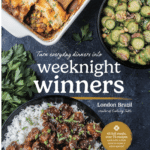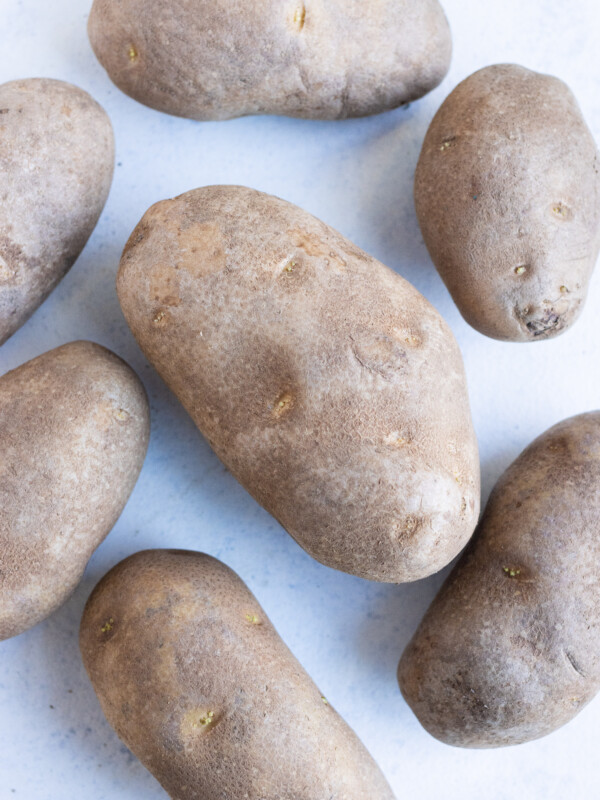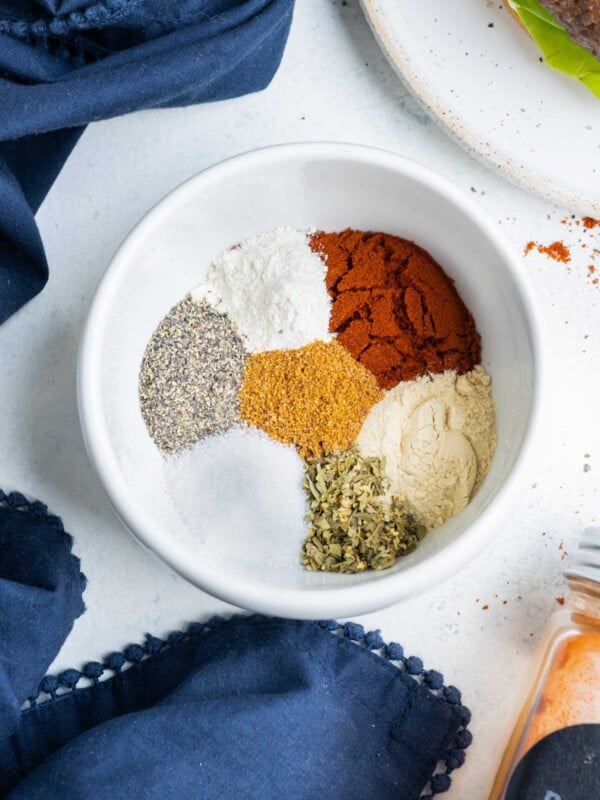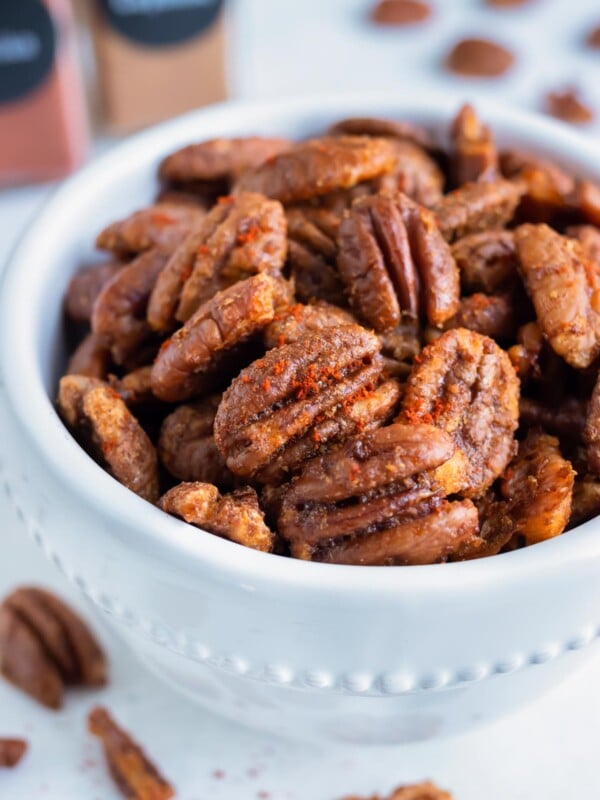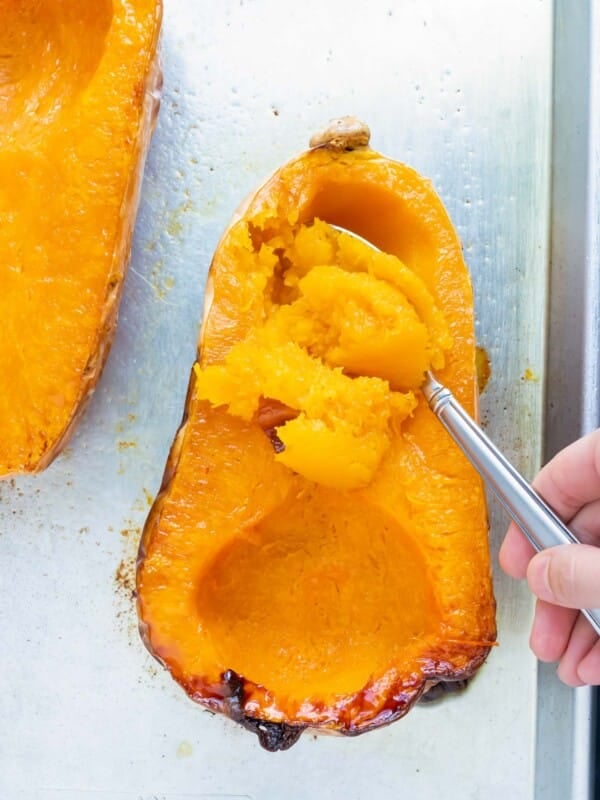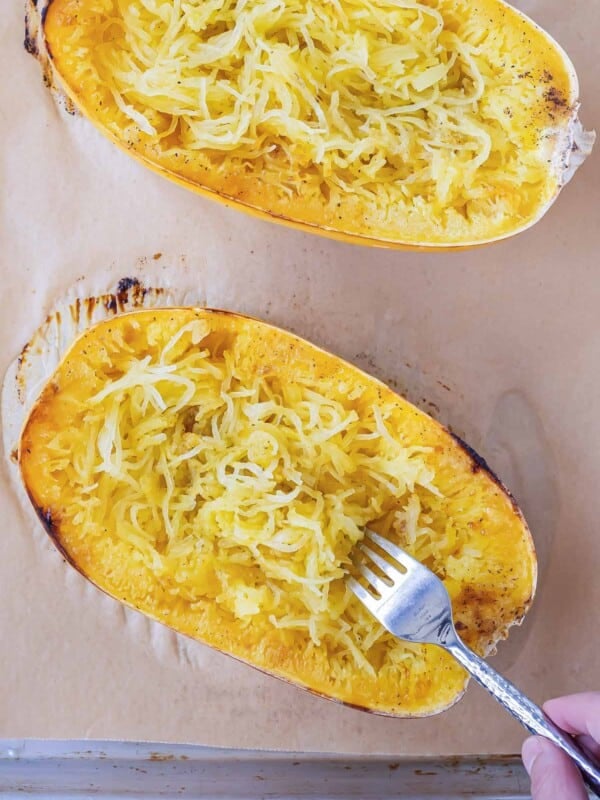The short answer is no, potatoes in their natural form do not contain gluten. If you have a gluten intolerance, of course it’s a good idea to double-check all foods you consume. And there are reasons to question whether foods that contain potato might also have gluten. Read on to understand why!
Are potatoes gluten-free?
A potato in its raw form does not contain gluten. This is great news for people who enjoy or require gluten-free foods!
Gluten is a type of protein that is found in wheat products like wheat, rye, barely, and other grains. Potatoes are not grains, but they are a starchy vegetable, so it’s easy to see why they might get confused with other starches.
When are potatoes not gluten-free?
There is a chance that recipes or restaurants add gluten-containing foods to potatoes. You always want to check the ingredients list on potato products to know if there are possibilities of gluten cross-contamination or gluten-filled food.
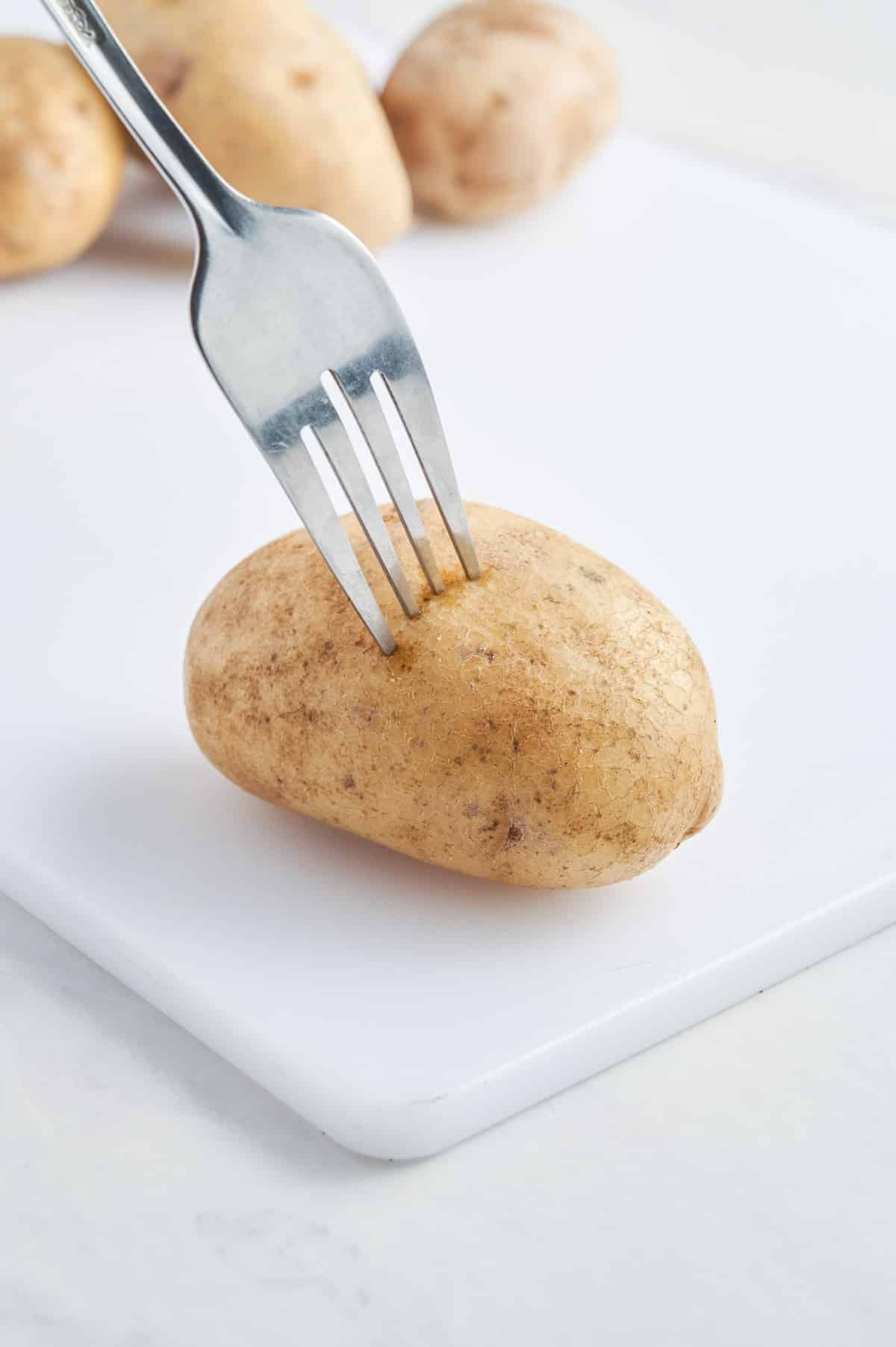
Potatoes that are not gluten-free (unless specified)
When making certain potato dishes, they can become full of gluten depending on how the food is prepared (either at home or a restaurant) and what types of foods you prepare with it.
Here is a breakdown of the different forms potatoes can take and how they can have gluten-containing ingredients.
Mashed Potatoes
There are a couple things to look out for here. If a restaurant boils potatoes in water that was also used to boil pasta, the potatoes would be cross-contaminated with the pasta. And if you’re avoiding gluten, you’ll also want to stay away from mashed potatoes that are served with gravy, which contains flour, a gluten-containing ingredient.
Boiled Potatoes
These most likely are gluten-free since they are just the potato themselves, but make sure they are not tossed in a gluten-containing flour. Or learn how to boil potatoes and make them at home!
French Fries
Like the pasta example, potatoes are contaminated with gluten when they are cooked in the same oil as something else that contains gluten. This is often the case when a restaurant puts battered foods in the same fryer as its French fries. Additionally, fries are sometimes dusted with flour or coated in breading, also introducing gluten into the equation.
If the menu does not state that they aren’t gluten-free, then fries are off-limits. It’s always worth asking, though. Chances are that they have a dedicated gluten-free oil basket for people who request it.
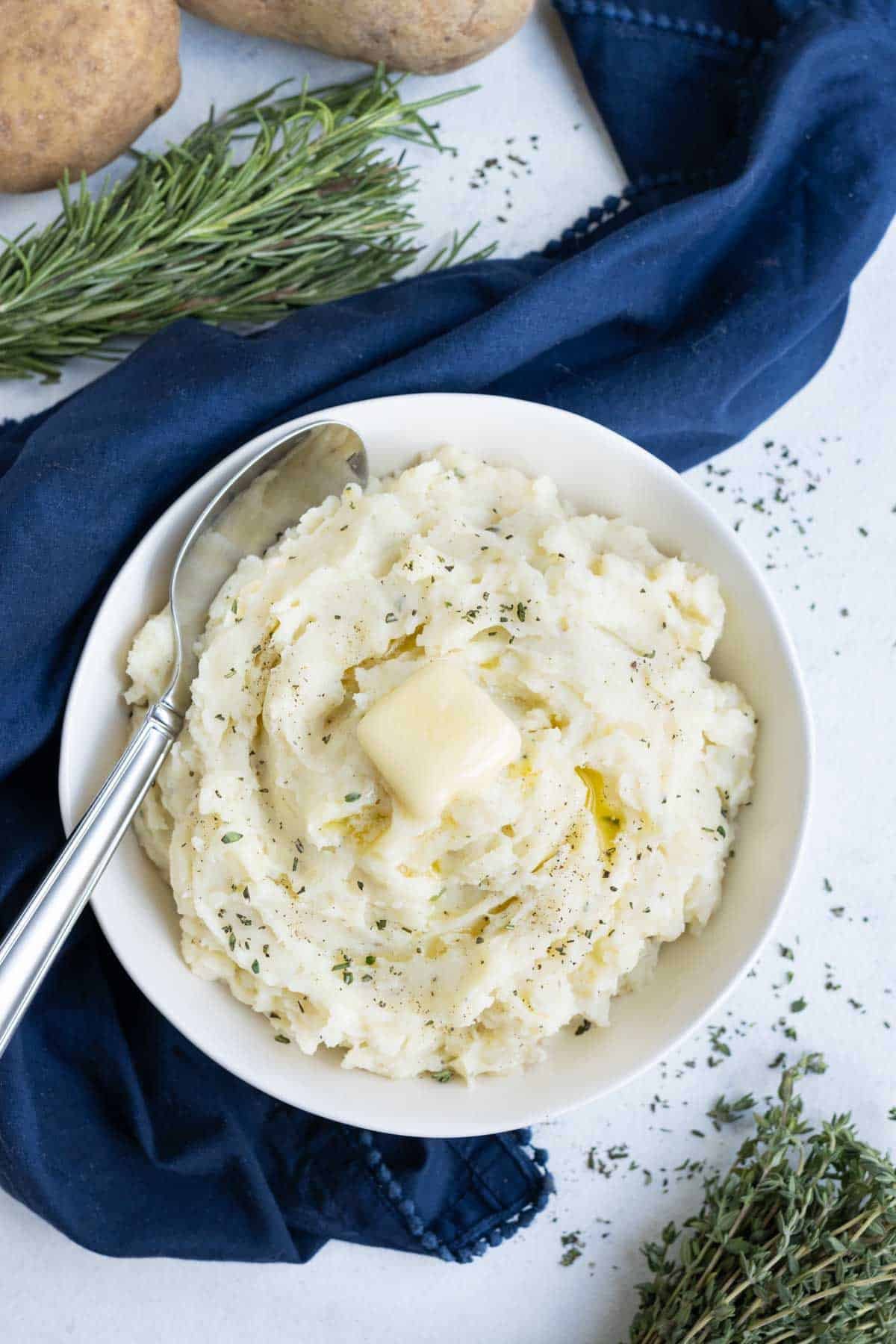
Potato Chips
Interestingly enough, chips at the store and at restaurants usually contain wheat starch or malt vinegar (made from barley).
Additionally, when they are flavored, they can be sprinkled with all sorts of seasonings that can contain gluten, like maltodextrin.
Lastly, potato chips can be processed in the same facility as other products that do contain gluten, creating the possibility for cross-contamination.
Reading the nutrition label is the safest route when choosing your own products.
Baked Potatoes
The biggest issue with baked potatoes that they are sometimes coated in butter and flour to make them crispy. Unless it’s gluten-free flour, then this preparation is a no-go.
Some restaurants bake their potatoes on the same oven racks as bread rolls, so watch out for this scenario, too.
Potato Bread
Potato bread isn’t just made with potatoes; it’s made with wheat flour too. Look for gluten-free potato breads when you’re wanting to buy or make some.
Breakfast Potatoes
Foods like hash browns and tater tots are usually made with flour to thicken the overall finished product. That results in cross contamination. Some restaurants use potato starch as a thickener, making these breakfast foods safe gluten-free options. Be sure to ask your server about how they’re prepared before ordering.
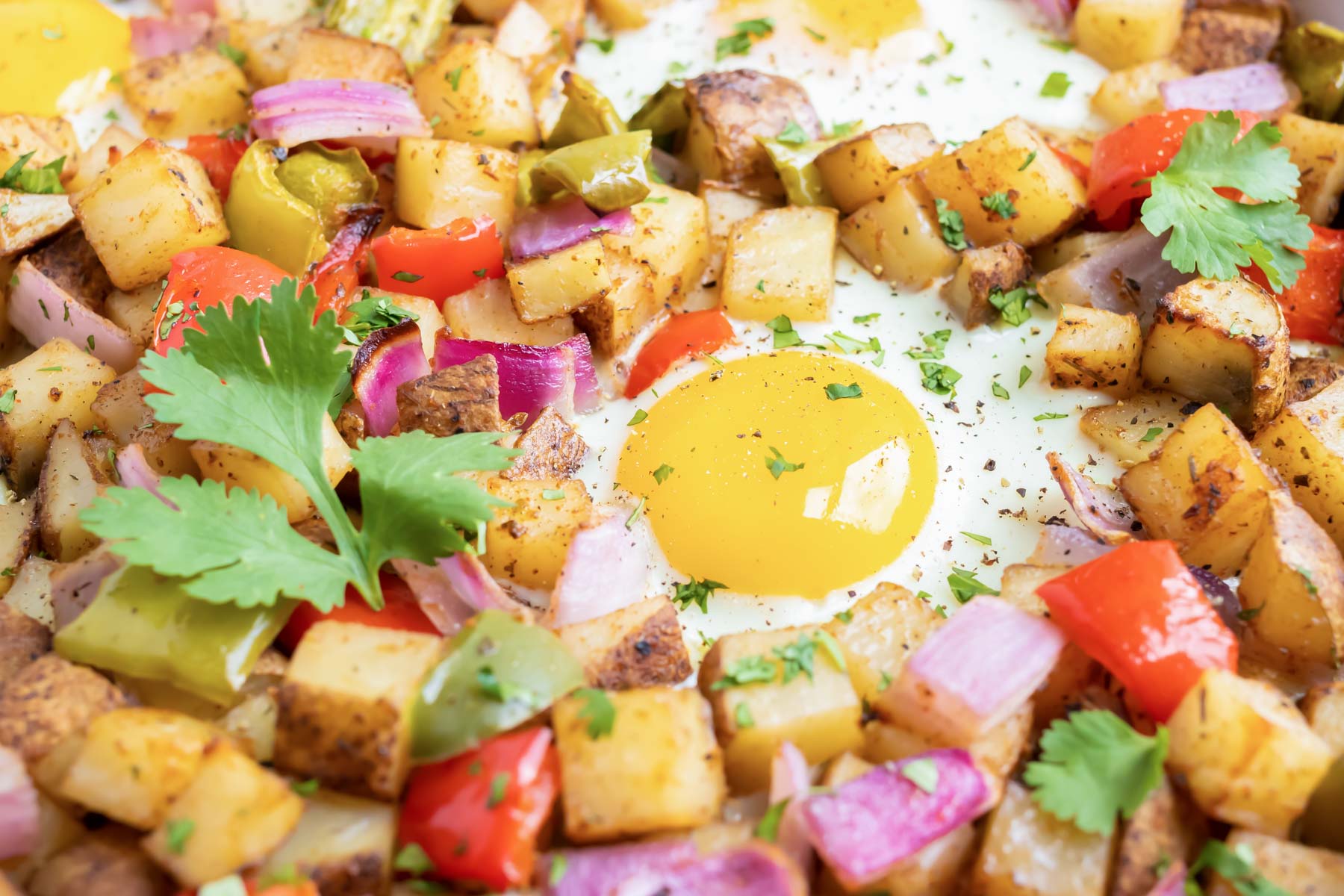
The Bottom Line: How to Keep Potatoes Gluten-Free
Be extra rigorous in your cooking methods. In recipes, substitute flours and thickeners with gluten-free flours or potato starches. Avoid boiling or frying them in the same pot as gluten-containing ingredients like pastas and batters. Double check the spices mixes or garnishes you put on your potatoes.
Check ingredient labels at your grocery store when choosing foods like potato chips. At restaurants, verify whether a dish contains gluten, especially if it goes in the fryer or is boiled with other gluten-containing ingredients.
Taking all of these precautions will ensure no cross contamination!
What potatoes are gluten-free?
All potatoes are gluten-free, from sweet potatoes to Yukon Gold, Kerr’s Pink, King Edward, and every potato in between.
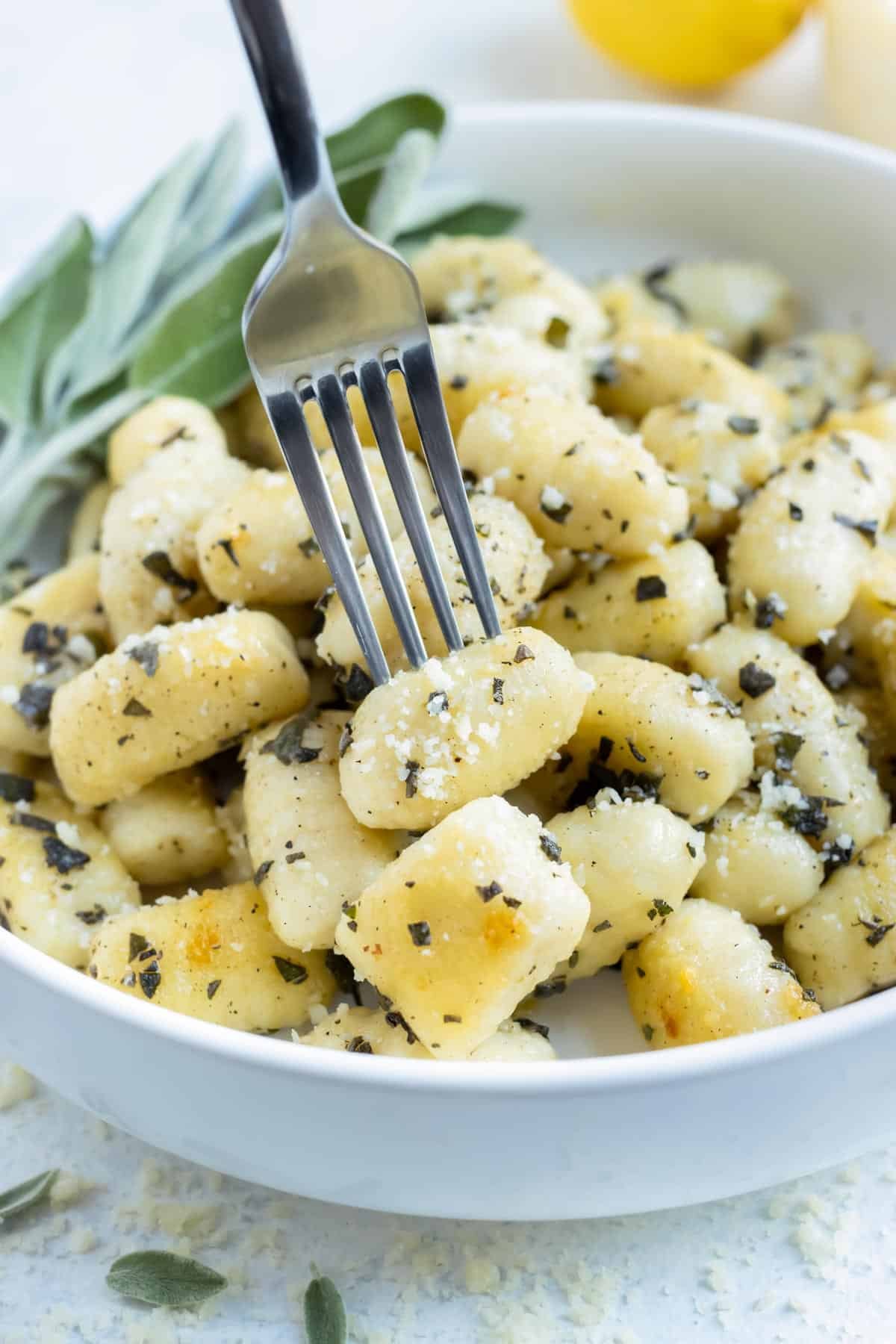
The Best Gluten-Free Potato Recipes
All of these recipes include gluten-free options, and if you ever have any questions just reach out for help!
Melting Potatoes are the best side dish for any meal. Homemade Potato Gnocchi will be a hit at your next family dinner. Don’t forget about these Mashed Potato Pancakes—they’ll put a fun spin on your breakfast!
Switch up your baked potato game with these Hasselback Sweet Potatoes to satisfy that crispy craving. These Baked Potato Wedges are ready in just an hour. You can never go wrong with these Air Fryer Sweet Potato Fries alongside your homemade hamburgers.
